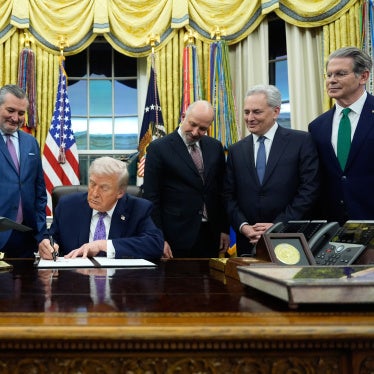Human Rights Council members will have an opportunity at the March session to put a much-needed focus on the increasingly imperiled right to privacy by creating a mandate for a UN special rapporteur on privacy. With the leadership of Brazil and Germany, and support from a broad coalition of other delegations, the prospects for creating a new mandate on the right to privacy are strong. Here is why it matters to human rights defenders.
Global context
We are in a period of profound societal change and disruption brought on by rapid expansion of information technology and the exponential adoption of digital technology.
The Internet has in many ways been a boon to the exercise of human rights. And social media have been essential in shaping political debates and human rights advocacy around the world. Space for civil society opens up when activists are able to circumvent government monopolies over dissemination of information; human rights defenders’ capacities are enhanced when they can use the Internet to organize themselves or can turn to social media to build public awareness and outrage over rights violations and abuses.
But while advancement in digital technology has had many positive social effects, the inexorable move toward the digitization of everything also has meant that governments have enhanced ability to monitor citizens’ movements, to censor speech, to block or filter access to information, and to track communications. Human rights defenders increasingly face threats, harassment and insecurity as a result of digital surveillance and collection of their personal data.
Consequences for human rights work
Aside from enhancing the repressive powers of governments through mass surveillance, global communications technology and the digitization of all aspects of social life have brought new urgency to concerns about how to protect privacy for consumers, journalists and especially human rights activists.
For human rights defenders, these questions are urgent because defenders often delve into problems or raise issues that governments would rather keep hidden. Their safety and that of victims and witnesses is at stake, as is their very ability to do their work. When everything you say or do can be intercepted, monitored, and surveilled, it has a chilling effect on what you feel free to say, where you feel free to go, and with whom you choose to meet. This goes to the heart of human rights advocacy and activism.
Why the Human Rights Council should act now
The animating energy behind the Brazilian-German initiative at the Human Rights Council is global concern about the serious costs and consequence for all fundamental freedoms in a democratic society that flow from domestic and extraterritorial surveillance, particularly when carried out on a mass scale.
A Special Rapporteur on the right to privacy would help develop international norms that more effectively address the interaction between privacy, freedom of expression, and other human rights in the digital context. It would also bring focused attention to the factors that facilitate overbroad surveillance. At present, private sector actors vary widely in what data they retain, and their practices in many instances have a direct bearing on what governments are able to collect and monitor.
Furthermore, by relying on antiquated concepts, governments continue to resist extending privacy protections to metadata even though data about GPS coordinates, contact information, message duration, and other metadata can reveal more about a person’s private life than the contents of their messages.
The lack of transparency and coherence, in both private sector and government data collection and retention practices, is deeply problematic for human rights protection and has a direct bearing on the domestic, as well as extraterritorial, obligations of governments to protect and respect privacy.
A Special Rapporteur will be able to more systematically review government policies on interception of digital communications and collection of personal data; pinpoint policies that intrude on privacy without compelling justification; identify best practices to bring global surveillance under the rule of law; and help ensure that national procedures and laws are consistent with international human rights law obligations.
The Rapporteur will also have the scope to explore private sector responsibilities to respect human rights under the UN Guiding Principles for Business and Human Rights in the specific context of digital information and communication technology.
In addition, the Special Rapporteur will have the opportunity to work with other experts on protecting free expression, freedom of peaceful assembly and association, and human rights defenders, to identify specific threats to rights in the context of massive and indiscriminate surveillance. Dedicated attention and collaboration on these subjects will facilitate a more comprehensive approach to the privacy issue.
Human Rights Council members have the opportunity to address directly an urgent need that is critical to the overall defense of human rights. Through creation of this mandate, members can provide essential global leadership to protect the right to privacy for human rights advocates and everyone else, and help all of us make the most of what the digital era has to offer for protecting human rights.









